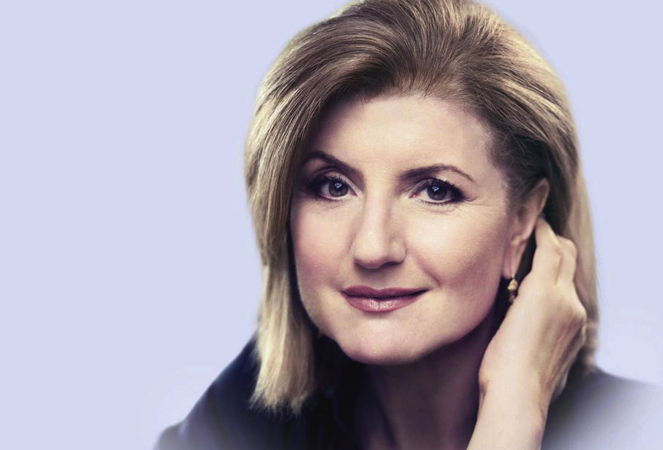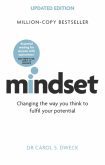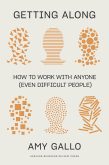THRIVE
By Arianna Huffington, Crown Publishing Group, $31.00
In her new how-to on how to succeed, and how to know you are succeeding, Arianna Huffington emerges at her ironic best, calling one chapter “Sleep your way to the top.”
The irony isn’t really a surprise, but perhaps the message is (or, at least, the growing amount of science behind the message). Sometimes it’s the soft stuff —the stuff that those of us on the farm can be quick to dismiss as “emotional” — that is essential for helping us make the next leap on our drive to thrive.
Read Also

Farm & Family – Feb 27 edition
Last week, we highlighted part one of a two-part series by GFM associate digital editor Geralyn Wichers about why you…
I guess the subhead should have clued me in: The Third Metric to Redefining Success and Creating a Life of Well-being, Wisdom and Wonder.
Say what?
 Huffington was selected by Time magazine as one of the 100 most influential people in the world and has written 14 books. Did I mention she sold Huffington Post to AOL a couple of years ago for $315 million?
Huffington was selected by Time magazine as one of the 100 most influential people in the world and has written 14 books. Did I mention she sold Huffington Post to AOL a couple of years ago for $315 million?
But it hasn’t all been bliss. The best part of this book is the introduction, where she describes her collapse from exhaustion and lack of sleep. Dramatically, she lies on the floor of her home office in a pool of blood from having hit her head on the way down. It was Huffington’s low point when she started asking herself whether this was really the success she had been looking for.
Much of the book is personal memoir, including talking of her mother and of spiritualism, so you might want to open up the concaves and blow out some of the chapters. But there are also chapters you will want to slow down and reread, with their focus on how large companies are trying to help their employees stay healthy and happy in order to improve profits and productivity. Here are some key points that resonated with me, even the cynical, practical farmer part of me.
It starts with this idea of sleeping your way to the top, and Huffington talks persuasively about medical studies linking poor sleep to high stress and an increased risk of heart disease and diabetes. Supposedly, about a third of people in the U.S. and U.K. are not getting enough sleep, and to remedy this, the Huffington Post offices added napping rooms.
To counter the chronic physical inactivity of her computer-driven world, Huffington also has walking meetings with her staff, and some of her offices provide yoga classes. Walking stimulates thoughts and creativity by changing your immediate environment and getting the blood flowing. Insights and discovery are also more likely when you’re moving, she says. It makes me wonder if going up and down a 200-foot silo does the same thing?
Huffington charges on, however, offering even more tips that might work for small business.
Huffington also points to a study that says the average smartphone user checks his or her device every 6.5 minutes. That’s an incredible 150 times a day.
It’s also enough distraction to drive anyone into exhaustion, even a political web-blogger like Huffington. She says this overuse has led to chronic multi-tasking, which has been shown many times to be ineffectual and potentially dangerous. More people are getting hit as they cross the street because they are reading their smartphones. It seems we don’t know how to unplug.
In the appendices, Huffington lists dozens of websites and apps to help the addicted turn off their phones, and help with social media anxiety disorder too. Block sites, control browsers, preset use times, set goals, and run automatic time outs. Even set up physical barriers so you can’t peek when you aren’t supposed to.
She calls the cramming of more work and stuff into the set hours of the day a “time famine.” (I prefer to describe myself as time-optimistic.) On average we’re lucky to have 30,000 days to play the game of life. According to Huffington, North Americans overbook most days and don’t leave enough time to enjoy the rewards of hard work. Moreover, the time we do have away from work is now being eaten up in front of glowing boxes, and being continually distracted by our smartphones.
She also says volunteerism and giving are ways to overcome depression. I’m thinking about asking her to see if she’ll be available to teach a 4-H club, coach a hockey team, run the church board and help put on our local fair. Maybe that’s why so many rural people are so happy? They volunteer and give to their communities all the time, but Huffington fails to mention that over-volunteering can contribute to burnout, especially while raising a family, running a business, keeping a large property and often working off-farm.
Research proves getting a good night’s sleep, turning off the Internet, giving to others, slowing down to enjoy the moment, exposing yourself to new things and places, and putting the brakes on multi-tasking can all make us more successful, especially if we add som physical exercise too. According to Thrive, many of us just don’t do those basic things and it’s resulting in poorer work performance.
Help someone in your community, wonder at the beauty of the sunrise, turn your cell phones off during meals and vacations, take a nap or turn off the TV and go to bed earlier. Did we need a rich Internet blogger to tell us that? Apparently the answer is yes.















